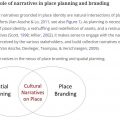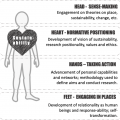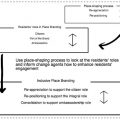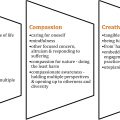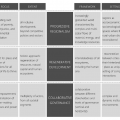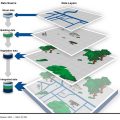The city-regional scale is increasingly being considered the most suitable level for planning and development, yet city-regions have often been established for purely economic reasons in the UK. This paper argues that city-regions are not mere socioeconomic units through which competitiveness can be achieved, but also rich, socioecological spaces. Although the progressive regionalist literature has taken significant steps in this direction, concerns remain that critical contemporary issues such as environmental sustainability, cultural viability, social exclusion or political (dis)empowerment have not been addressed in a holistic way. We attempt to advance the debate and overcome some of the shortcomings by connecting progressive regionalism with two other literature strands: collaborative governance and regenerative development. Based on the synergies found, we design a conceptual framework that can be used to study, understand and improve policy processes and practice, paving pathways towards regenerative city-regions.

